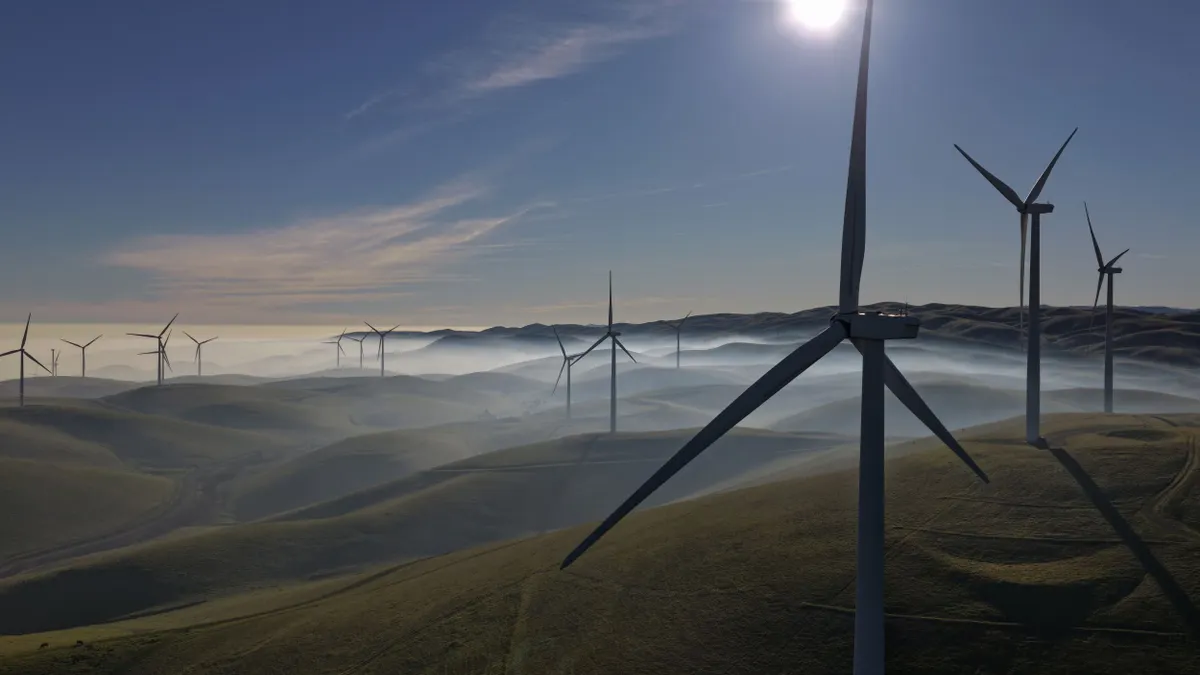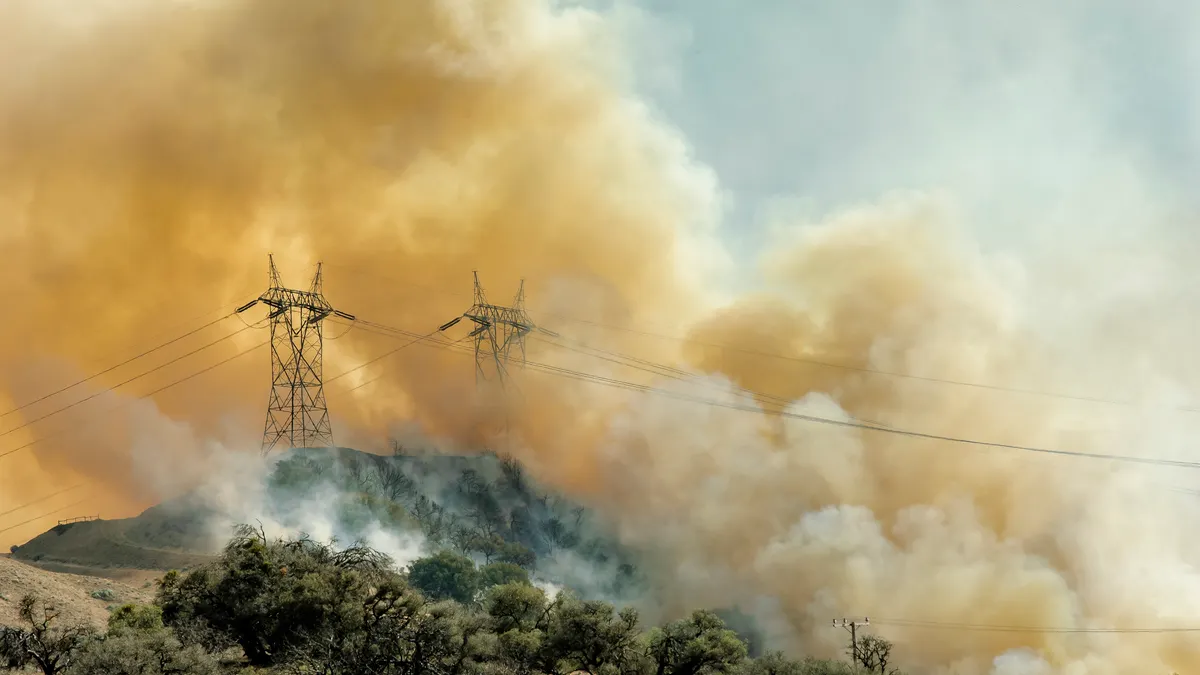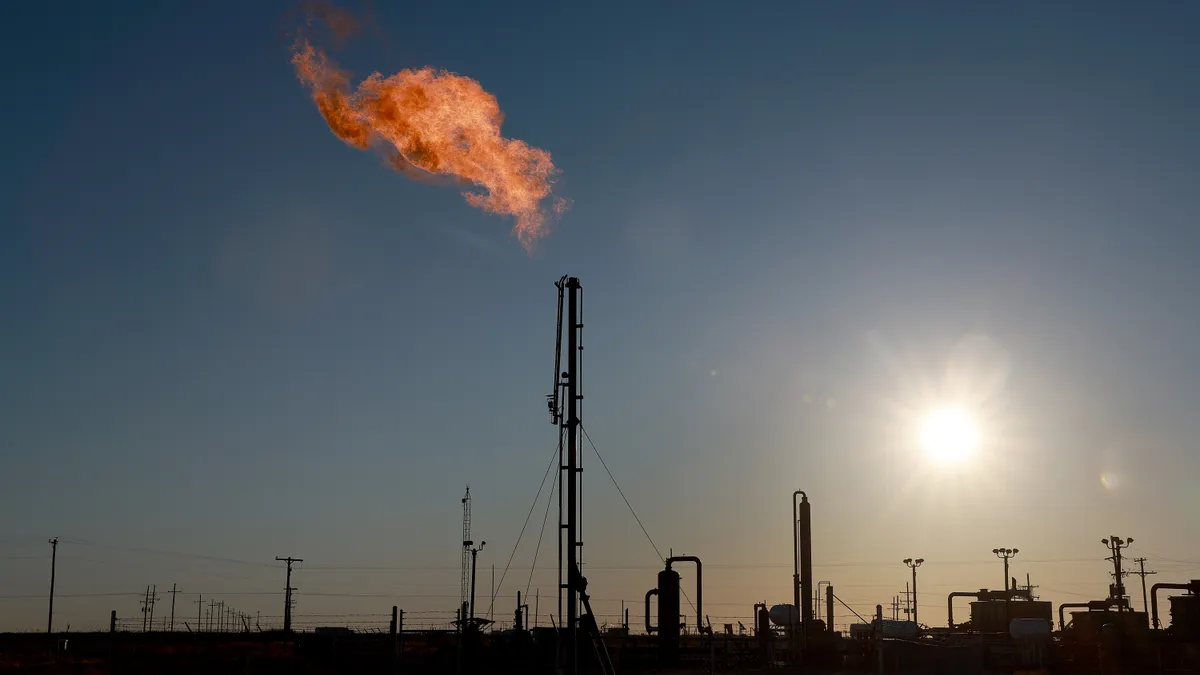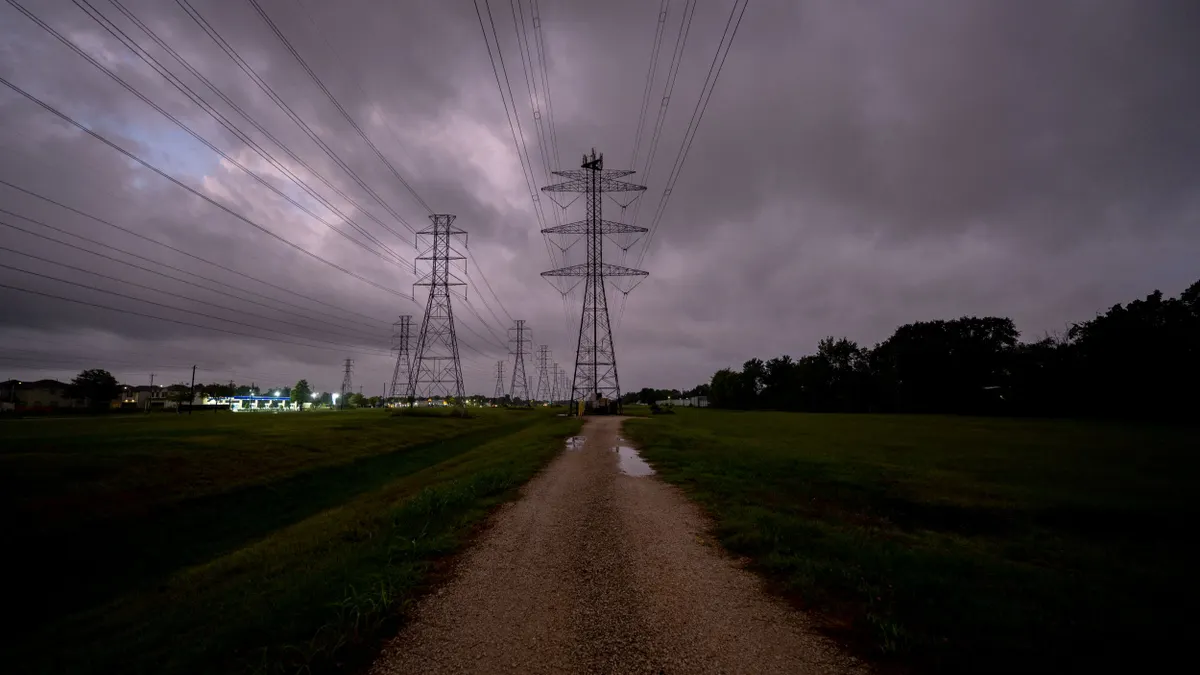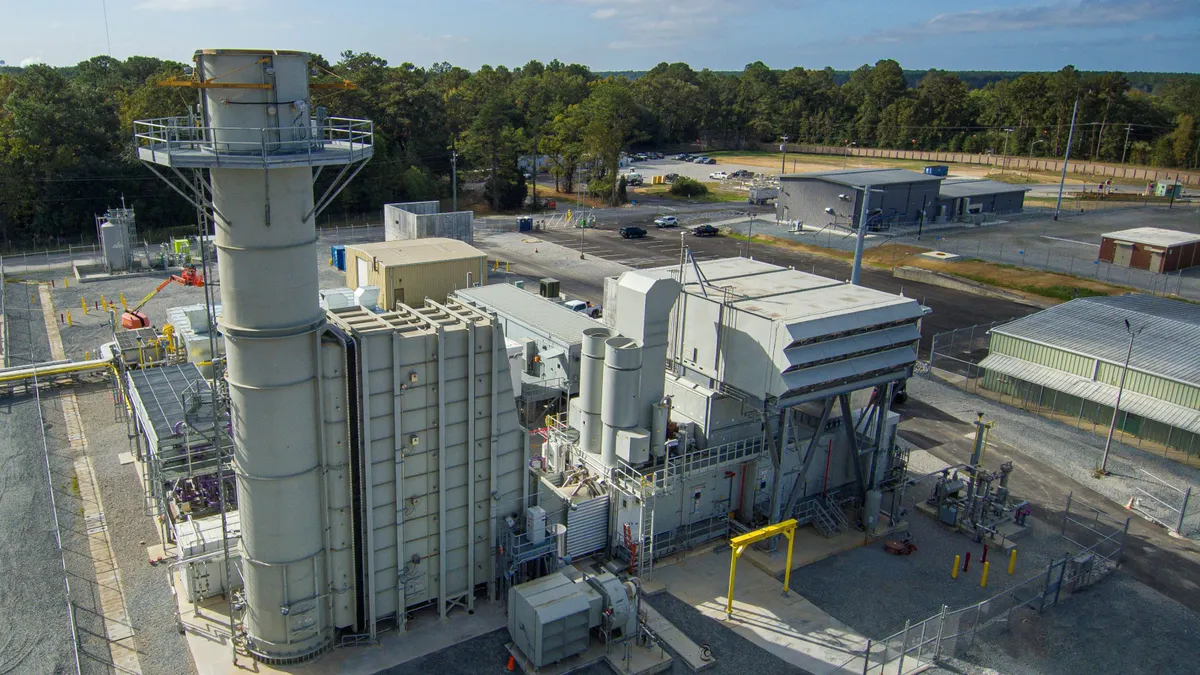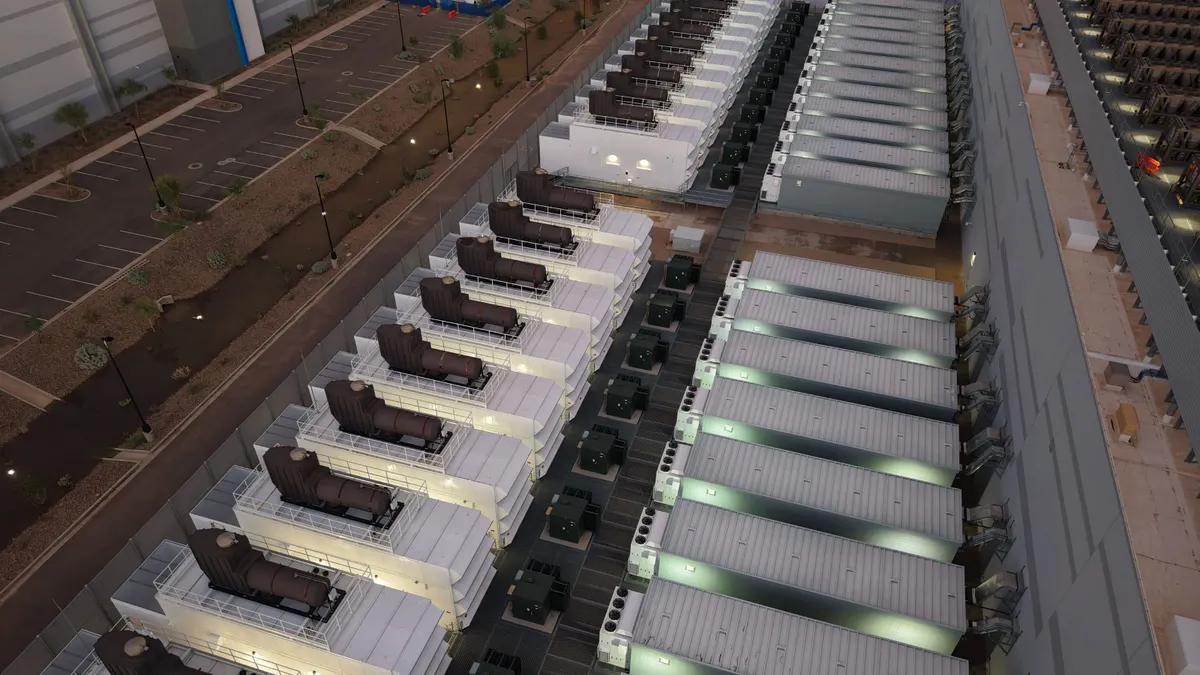The Department of Energy’s May order directing Consumers Energy to delay retiring a 1,560-MW, coal-fired power plant in Michigan was illegal and based on a nonexistent emergency, Earthjustice and other groups said in a rehearing request filed on Wednesday at DOE.
“The order represents an effort to replace the market- and state-led planning process provided by statute with an ill-advised and misinformed exercise in federal command-and-control,” the public interest groups said in their request that DOE rescind its decision.
If DOE does not respond to the request within a required 30 days, the groups plan to challenge the 90-day emergency order in court, they said.
Michigan Attorney General Dana Nessel also asked DOE to reverse its decision, which she said was an “unlawful abuse” of its authority. “The result of this overreach will be unnecessary costs imposed on already-overburdened ratepayers, needless pollution emitted into Michigan and its neighboring states, and an unprecedented intrusion into the authority of states and the Federal Energy Regulatory Commission to regulate the resource adequacy of our electric grid,” Nessel said.
The Federal Power Act’s section 202(c) gives the DOE secretary the authority to temporarily order power plants to operate during wars and emergencies. In a May 23 order, DOE Secretary Chris Wright said parts of the Midwest faced an “energy emergency” and that Consumers’ J.H. Campbell power plant in West Olive, Michigan, should run until Aug. 21, past its planned May 31 shutdown.
DOE cited two reports in finding that an emergency exists in MISO: NERC’s 2025 Summer Reliability Assessment issued on May 14 and the grid operator’s capacity auction results released in late April.
Those reports fail to show Michigan faces an emergency that requires the Campbell power plant to keep running, according to the public interest groups. MISO and the Michigan Public Service Commission have said the state and broader Midcontinent system have adequate power supplies this summer, the groups said. Also, MISO and the PSC approved retiring the Campbell power plant, and Consumers acquired replacement power supplies, they noted.
“MISO has made clear time and again that the vast region over which it has balancing authority is resource adequate for summer 2025,” the groups said. “This means that MISO is not facing any imminent shortage that might justify an emergency declaration within the meaning of Section 202(c).”
The Federal Power Act permits DOE to issue an emergency order in the face of “an imminent, exigent, short-term supply shortfall,” but the department failed to show those conditions exist, the groups said.
Also, since the PSC approved retiring the Campbell plant in 2022, Consumers has been preparing for its shutdown, including by not investing in maintenance and upgrades for the facility, the groups said.
“As a result of the canceled projects and forgone maintenance and investment, it is unlikely that Campbell can reliably dispatch without significant further expense,” the groups said.
The power plant had higher-than-average unplanned outages in the last two years, the groups said. Unplanned outage rates for the power plant's three units were 14.8%, 48% and 19.3% last year compared with an average rate of about 12% for the U.S. coal fleet, according to the groups.
DOE’s order is also unlawfully vague about what MISO and Consumers are expected to do in terms of making the Campbell plant available, the use of economic dispatch and who should pay for keeping the plant running, according to the groups. “MISO and Consumers are left in the dark as to what they are required to do,” they said.
“There is no energy emergency in our country — and certainly no shortage of power plants in Michigan or in MISO — and it is illegal to invoke a made-up emergency to overturn a long-planned plant retirement,” Greg Wannier, a senior attorney at the Sierra Club, said in a press release. “This action will only make bills more expensive for Michiganders and sets a dangerous precedent for government interference in the energy industry.”
The groups signing the rehearing request include the Sierra Club, Environmental Law and Policy Center, Natural Resources Defense Council, Michigan Environmental Council, Environmental Defense Fund, Vote Solar, Public Citizen, Union of Concerned Scientists, the Ecology Center and Urban Core Collective.
Cost recovery action at FERC
Meanwhile, MISO and Consumers Energy were unable to agree on how the utility should recoup its costs for running the power plant past its intended retirement date, DOE said in a June 13 letter to the Federal Energy Regulatory Commission.
DOE asked FERC to determine how Consumers Energy should be paid. FERC shouldn’t consider any other issues, such as DOE’s finding that there is an emergency in MISO and the conditions of service ordered by the department, DOE said.
Consumers Energy on June 6 filed a complaint at FERC seeking to establish a pathway for it to recover its costs to keep the plant in Michigan running. Currently, MISO lacks a mechanism to pay generators that run under section 202(c) emergency orders, and the grid operator has no way to allocate those costs, according to Consumers. Comments on the complaint are due on Friday.
In the complaint, Consumers said it was complying with DOE’s order by offering energy into the MISO market and that the Campbell plant is producing electricity when dispatched. The utility said it plans to make a separate cost-recovery filing at FERC after the DOE order expires.
Separately, the PJM Interconnection earlier this month launched a fast-track process to set a cost recovery mechanism for Constellation Energy’s Eddystone units in Pennsylvania. A day before those units were set to retire, DOE on May 30 issued an emergency order to keep those units operating.
Editor’s note: This story was updated to include the Michigan attorney’s general rehearing request.





